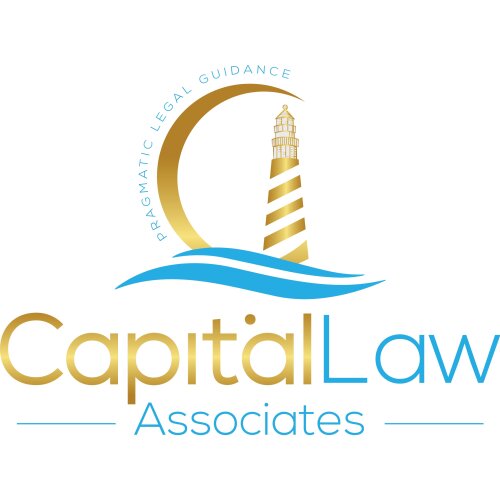Best Nonprofit & Charitable Organizations Lawyers in Bahamas
Share your needs with us, get contacted by law firms.
Free. Takes 2 min.
Or refine your search by selecting a city:
List of the best lawyers in Bahamas
About Nonprofit & Charitable Organizations Law in Bahamas
The Bahamas is a vibrant jurisdiction for nonprofit and charitable organizations, offering opportunities to contribute to various social, cultural, and environmental causes. The legal framework governing these organizations ensures they operate in a manner that is transparent, accountable, and beneficial to the community. The process to establish a nonprofit entity is regulated, requiring compliance with specific local rules and standards set forth to protect both the public interest and the organizations themselves.
Why You May Need a Lawyer
Engaging a lawyer specializing in nonprofit and charitable organizations in the Bahamas can be beneficial for several reasons. Legal experts can help with setting up and registering your organization, ensuring compliance with all national regulations and standards. They also provide guidance on governance structures, funding options, tax issues, and any disputes or challenges that may arise. In essence, a knowledgeable lawyer can help protect your organization's interests and ensure its smooth and successful operation.
Local Laws Overview
The Bahamas has a comprehensive legal framework for nonprofit and charitable organizations, primarily governed by the Companies Act, the Charities Act, and other relevant regulations. Key aspects include the registration process, financial transparency requirements, governance standards, and rules prohibiting political activities by nonprofits. Compliance with anti-money laundering regulations and ensuring that all donations and expenditures are properly documented are also critical aspects of the legal framework in the Bahamas.
Frequently Asked Questions
What is the process for registering a nonprofit in the Bahamas?
Registering a nonprofit in the Bahamas typically involves submitting an application to the Registrar General's Department, along with a set of governing documents that outline the organization's mission, structure, and operational guidelines.
Do we need to register if we are a small volunteer group?
While smaller volunteer groups might not need formal registration, it is recommended to do so for credibility, transparency, and to ensure compliance with legal requirements, especially if the group intends to raise funds or solicit donations.
What are the tax implications for charitable organizations in the Bahamas?
Nonprofit and charitable organizations in the Bahamas may benefit from certain tax exemptions, including exemptions from customs duties and some taxes. However, organizations must comply with stringent record-keeping and regulatory requirements to maintain these exemptions.
Can a nonprofit in the Bahamas engage in political activities?
No, nonprofits and charitable organizations are prohibited from directly engaging in political activities or using their resources for political purposes as per the local laws.
What type of reporting is required for nonprofits in the Bahamas?
Nonprofits are typically required to maintain accurate financial records and submit annual reports detailing their activities, finances, and compliance with applicable regulations to the appropriate government authorities.
Are there laws against money laundering that apply to nonprofits?
Yes, the Bahamas has robust anti-money laundering laws that apply to nonprofits, requiring them to implement appropriate measures to prevent financial crimes and ensure that all transactions are legal and transparent.
Can foreign nonprofits operate in the Bahamas?
Foreign nonprofits can operate in the Bahamas, but they must register with local authorities and comply with Bahamian regulations, just like domestic nonprofits.
What happens if a nonprofit fails to comply with the legal requirements?
Failure to comply with legal requirements can result in penalties, fines, or revocation of the organization’s registration. Legal compliance is essential for the continued operation of a nonprofit in the Bahamas.
Who oversees nonprofit activities in the Bahamas?
The Registrar General's Department and relevant government ministries oversee the registration, operation, and dissolution of nonprofits in the Bahamas, ensuring they adhere to legal standards and regulations.
How can a lawyer assist with nonprofit disputes?
A lawyer can provide mediation services, represent your organization in court, and offer legal advice and strategies to resolve disputes with stakeholders, donors, or between board members effectively.
Additional Resources
For more information and assistance, consider reaching out to the following resources:
- The Registrar General's Department - for guidance on registration and compliance
- The Ministry of Finance - for information on tax exemptions and financial regulations
- The Charitable Organizations Registry - for updates on charity regulations and requirements
- Legal Aid organizations - offering support for nonprofit management and legal challenges
Next Steps
If you need legal assistance in dealing with matters related to nonprofit and charitable organizations, consider the following steps:
- Contact a lawyer specializing in nonprofit law in the Bahamas to discuss your needs.
- Prepare essential documents, such as your organization's bylaws, mission statement, and any existing legal filings.
- Schedule consultations with potential legal advisors to assess their expertise and compatibility with your organization's goals.
- Stay informed about new legal developments by subscribing to updates from relevant governmental bodies and nonprofit associations.
Lawzana helps you find the best lawyers and law firms in Bahamas through a curated and pre-screened list of qualified legal professionals. Our platform offers rankings and detailed profiles of attorneys and law firms, allowing you to compare based on practice areas, including Nonprofit & Charitable Organizations, experience, and client feedback.
Each profile includes a description of the firm's areas of practice, client reviews, team members and partners, year of establishment, spoken languages, office locations, contact information, social media presence, and any published articles or resources. Most firms on our platform speak English and are experienced in both local and international legal matters.
Get a quote from top-rated law firms in Bahamas — quickly, securely, and without unnecessary hassle.
Disclaimer:
The information provided on this page is for general informational purposes only and does not constitute legal advice. While we strive to ensure the accuracy and relevance of the content, legal information may change over time, and interpretations of the law can vary. You should always consult with a qualified legal professional for advice specific to your situation.
We disclaim all liability for actions taken or not taken based on the content of this page. If you believe any information is incorrect or outdated, please contact us, and we will review and update it where appropriate.
Browse nonprofit & charitable organizations law firms by city in Bahamas
Refine your search by selecting a city.

















